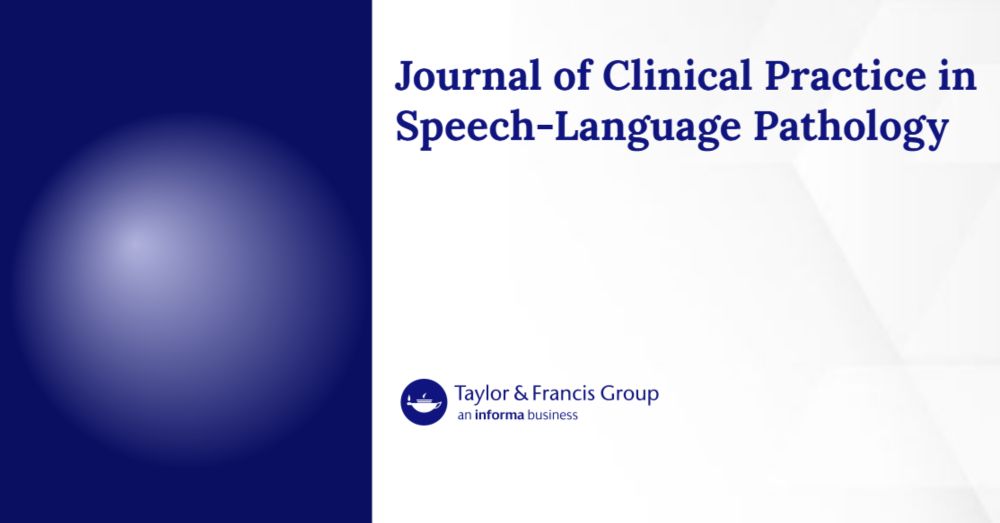
New open access paper: idp.springer.com/authorize?re...
12.09.2025 04:22 — 👍 0 🔁 0 💬 0 📌 0
New open access paper: idp.springer.com/authorize?re...
12.09.2025 04:22 — 👍 0 🔁 0 💬 0 📌 0
🆓🔓
Klieve, S., & @hannahstark.bsky.social Stark, H. (2025). Teachers’ perspectives of speech language pathology reports for students with communication needs. Journal of Clinical Practice in Speech-Language Pathology, 27(1), 112–130. doi.org/10.1080/2200...
🦋 #bskySPEECHIES
I’m looking forward to reading this!
20.02.2025 09:04 — 👍 2 🔁 0 💬 0 📌 0@cristina-mckean.bsky.social I’ve sent you an email 🚎
18.02.2025 05:08 — 👍 1 🔁 0 💬 1 📌 0
Applications for our Melbourne-Manchester **funded** PhD project about language learning in ECEC are still open
findanexpert.unimelb.edu.au/opportunity/...
The Early Language in Victoria Study is 21!! 🎉
Please join my University of Melbourne colleagues for the upcoming symposium: “The Early Language in Victoria Study: Reflections and Policy Impacts over 21 years”.
14th March 10:30am – 3:30pm AEDT.
www.eventbrite.com.au/e/elvs-resea...
Reach out to Dr Penny Levickis or myself if you’d like to notes more - details in the link above.
27.01.2025 11:29 — 👍 0 🔁 0 💬 0 📌 0
Exciting Dual-Award PhD Opportunity in early language learning at the University of Melbourne and The University of Manchester
findanexpert.unimelb.edu.au/opportunity/...

Very excited to come across the IMPRESS-C, an Australian intervention sustainability measure that is validated and designed for early childhood settings implementationscience.biomedcentral.com/articles/10....
10.12.2024 22:36 — 👍 2 🔁 0 💬 0 📌 0Hi @suze-freogirl.bsky.social 👋 Steph Weir and I have been interviewing SLPs about assessment and neurodiversity affirming practice. Work still underway, but lots of second guessing when using approaches other than standardised ax. Language shift definitely would help.
18.11.2024 20:15 — 👍 5 🔁 2 💬 0 📌 0